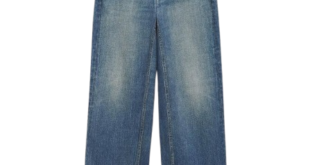Fashion is More Than Just Clothing
Fashion transcends mere garments; it is a profound expression of identity, culture, and individuality. Every piece of clothing carries with it a narrative, often reflecting the wearer’s personality, values, and beliefs. From the choice of fabrics to the colors and styles, each decision speaks volumes about who we are and how we wish to present ourselves to the world. When we dress, we are not just putting on clothes; we are communicating something about our lives and experiences.
Cultural Significance of Fashion
Fashion is deeply rooted in cultural traditions and histories. Different cultures have unique styles that convey their values and heritage. For instance, the intricate patterns of African textiles tell stories of community and history, while Japanese https://officialsericmanuel.us/ kimonos reflect centuries of artistry and tradition. Fashion acts as a bridge, connecting generations and allowing us to honor our roots. It also facilitates dialogue between cultures, showcasing diversity and promoting understanding in an increasingly globalized world.
The Psychological Impact of Fashion
What we wear affects not only how others perceive us but also how we perceive ourselves. This psychological aspect of fashion is significant; clothing can boost our confidence or reflect our mood. Ever noticed how slipping into your favorite outfit can elevate your spirits? This phenomenon, often referred to as “enclothed cognition,” highlights the mental connection between our attire and our state of mind. Thus, fashion plays a crucial role in shaping our self-esteem and how we navigate the world around us.
Sustainability and Ethical Fashion
In recent years, the fashion industry has faced scrutiny over its environmental impact and ethical practices. Fast fashion, characterized by cheap and disposable clothing, has led to significant waste and exploitation of labor. However, a growing movement towards sustainable and ethical fashion is emerging, emphasizing the importance of conscious consumption. This shift encourages consumers to invest in quality pieces, support local artisans, and choose brands that prioritize fair labor practices and eco-friendly materials. Fashion, therefore, can serve as a vehicle for positive change.
Fashion as Art
Fashion is undeniably an art form, blending creativity with functionality. Designers are akin to artists, crafting pieces that push boundaries and provoke thought. Fashion shows often resemble theatrical performances, where clothing is showcased in innovative ways that challenge conventional aesthetics. The work of iconic designers like Alexander McQueen or Coco Chanel transcends typical fashion boundaries, inviting us to appreciate clothing not just as attire but as an expression of artistic vision. This artistic lens allows fashion to engage with societal issues and personal narratives.
The Role of Fashion in Social Movements
Throughout history, fashion has played a pivotal role in social movements, serving as a tool for activism and self-expression. From the suffragettes who wore white to symbolize their fight for women’s rights to the black attire of the #MeToo movement, clothing choices have the power to convey solidarity and challenge societal norms. Fashion can unite individuals under a common cause, making it a powerful medium for raising awareness and instigating change. As we don specific styles, we often align ourselves with broader movements and advocate for the issues we care about.
Fashion and Technology
The intersection of fashion and technology is revolutionizing how we perceive and interact with clothing. Innovations such as wearable technology and 3D printing are transforming the industry, allowing for personalized and interactive experiences. Brands are leveraging social media to connect with consumers, turning everyday individuals into influencers. This fusion of fashion and technology not only enhances creativity but also democratizes fashion, making it accessible to a wider audience. As we navigate this evolving landscape, we witness the potential for fashion to adapt and thrive in a digital age.
Phenomenon That Goes Beyond Clothing
Fashion is often perceived merely as the clothing we wear, but it is, in fact, a multifaceted phenomenon that encompasses much more than just textiles and styles. It reflects our identities, our cultures, and the societal shifts we experience.
Conclusion: The Multifaceted Nature of Fashion
In essence, fashion is a multifaceted phenomenon that goes beyond clothing. It is an integral part of our lives, reflecting our identities, cultures, and values. https://namedcolective.us/ As we explore its various dimensions—from its cultural significance to its role in social movements and technological advancements—we begin to appreciate the profound impact fashion has on our society. centralservices Ultimately, fashion is not just about looking good; it’s about feeling empowered, connected, and inspired. centralservices
 The Random Collective Where Curiosity Meets Creativity
The Random Collective Where Curiosity Meets Creativity




